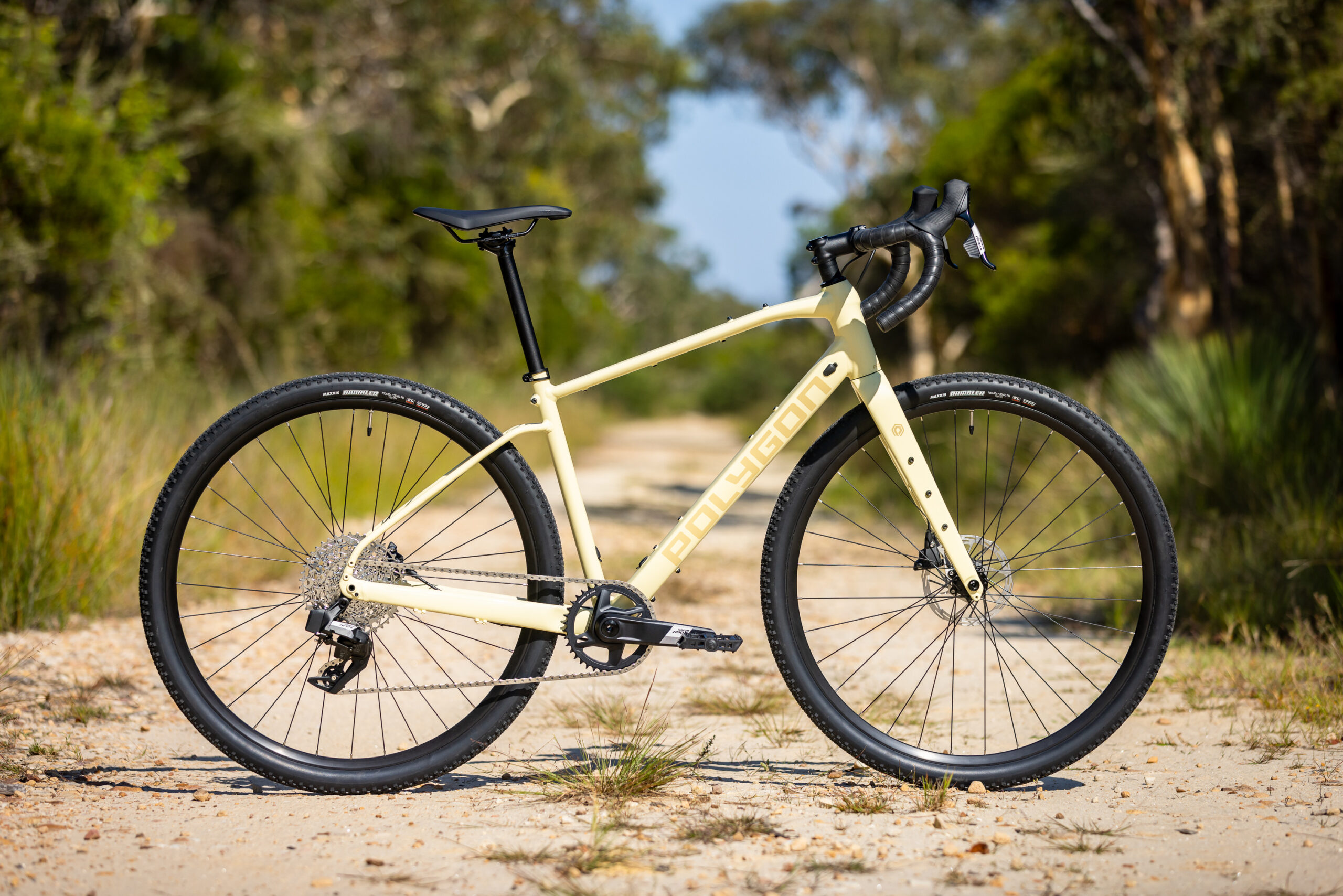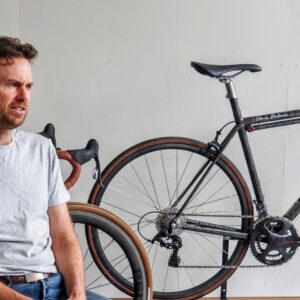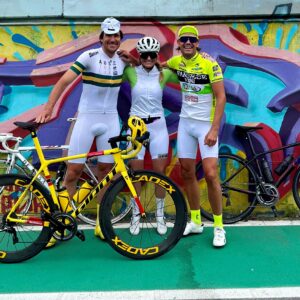If you’re in the market for something “gravelly,” it is tough to determine which bike is right. Luke Meers investigates.
I’m not sure if you’ve noticed that the bike market is getting more and more nuanced. Do you need something aggressive and CX in style, or more bike-packing and ready to ride for days? Do you want something for competitive gravel events or exploring local firetrails and doubling as a commuter? It’s messy, and to be fair, which geometry style suits which use-type depends on who you ask. With the Bend series, the Indonesian company Polygon is offering a bike that aims to provide enough versatility for the buyer to keep their options open.
First impressions
You’ve probably seen advertisements in your social feed for Polygon or its main point of sale in Australia, the website Bicyclesonline.com.au. Like I did at first, you might assume that their range would be cheap, generic, and low quality. There’s a strong case, however, that the business model they’ve adopted is modern and effective in delivering bikes at a very competitive price-quality ratio. They have a global design team and a vertically integrated manufacturing setup in Indonesia, which they claim allows for tighter quality control throughout construction and assembly. I have friends who own Polygon road bikes, but this was my first experience riding one myself.
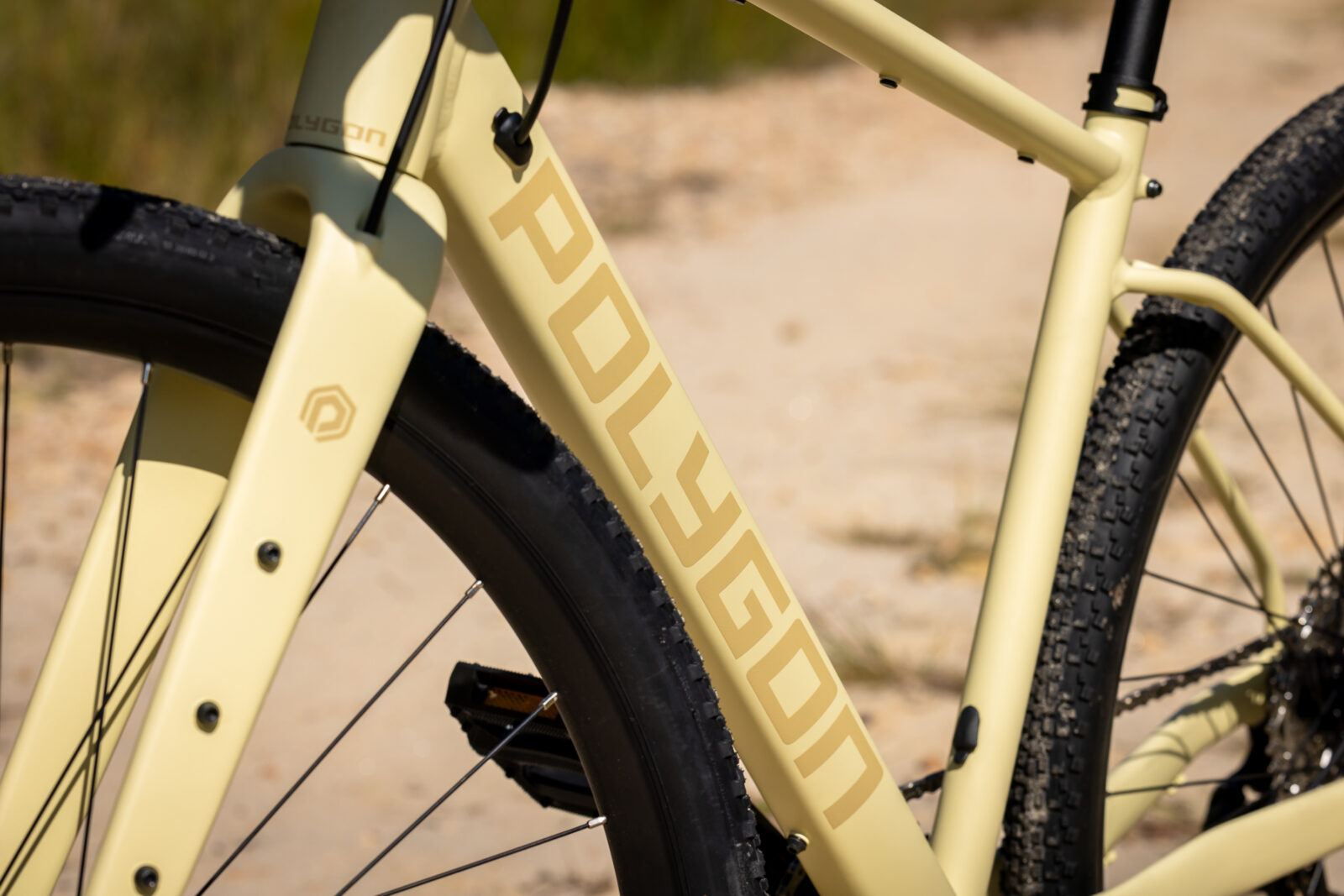
Frame & construction
The Bend R6X sits mid-range in the Bend line-up – a series built for versatility across terrain from tarmac to trail. The frame is constructed from ALX Advance Alloy, Polygon’s proprietary version of hydroformed 6061 aluminium. This material strikes a good balance between durability, ride comfort, and weight. The bike is matched with a full carbon fork, offering improved shock absorption and a premium feel. Both frame and fork are absolutely covered in mounting points – for bottles, racks, top-tube bags, fenders, and more. You could kit this out for ultralight touring or stripped-down gravel racing with equal ease.
The geometry supports this all-purpose ambition. In the Medium size, the stack comes in at around 612mm, reach at about 375mm, with an effective top tube of roughly 550mm. A 74° seat tube angle and generous 1,058mm wheelbase combine to give a relaxed, upright ride posture without feeling sluggish. The 440mm chainstays further enhance its stability, especially when carrying gear. My time on the Medium frame matched these numbers well – the bike felt very predictable and stable, even when the trail got gnarlier than expected.
While I didn’t do any epic all-day rides, I was impressed by how comfortable I felt right away. The endurance geometry would be easy to live with on longer adventures. And although it’s not pitched as a racer, the Bend R6X didn’t shy away from power – I tested its limits on a few local gravel climbs and happily snagged some Strava KOMs with 450 watts pushing through the pedals. It also helps that the frame is dropper-post compatible (27.2mm, internally routed), giving riders even more flexibility for more hectic off-road adventures. The top-tier Bend R9X comes stock with one.
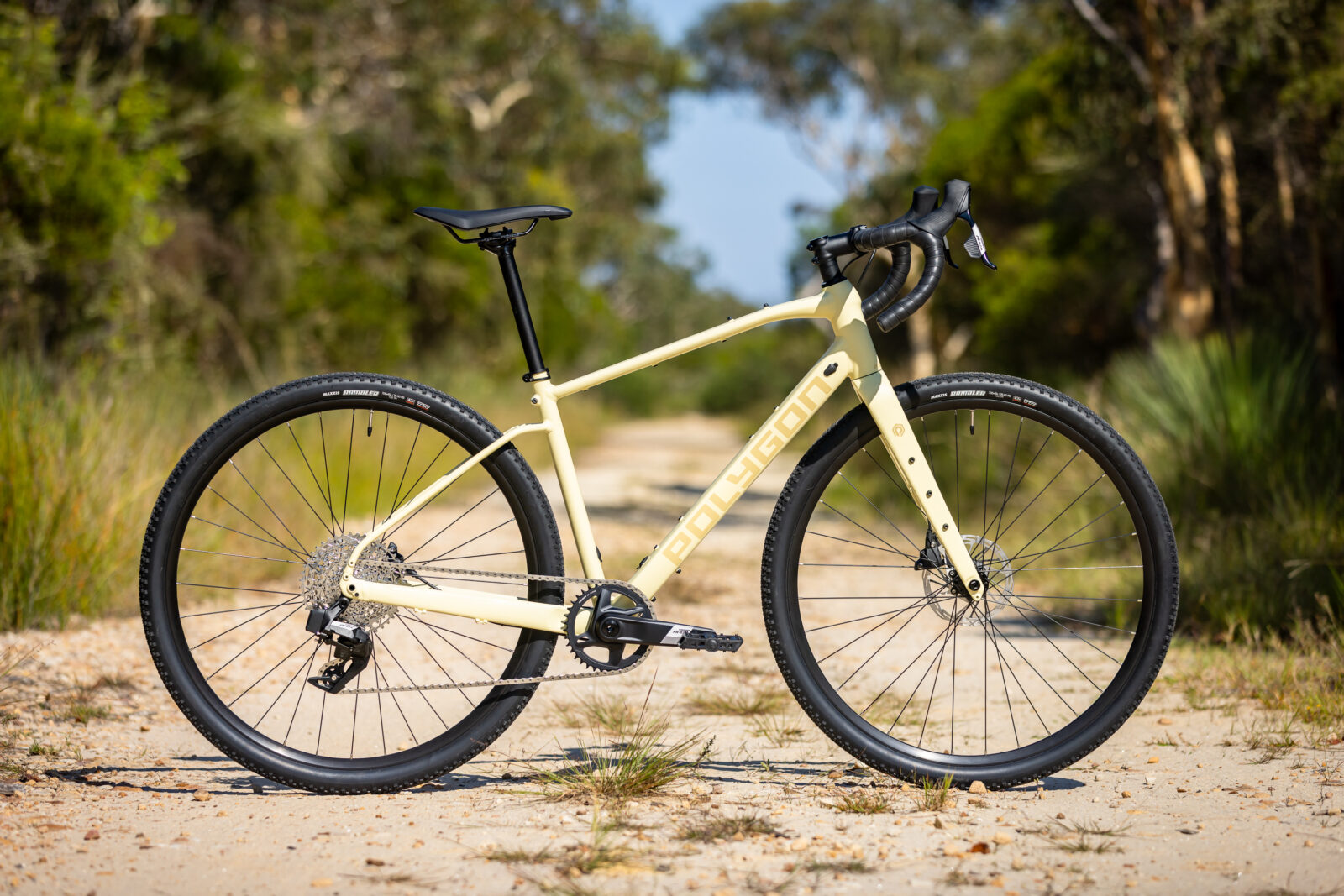
Componentry
The R6X is fitted with the SRAM Apex XPLR AXS 1×12 groupset, a definite highlight of the build. Wireless shifting in this price range is an impressive inclusion, and the performance backed it up. 1x drivetrains are intuitive and dead simple to use – no thinking required, ride – and the AXS system handles shifts with speed and reliability. I did have a couple of chain-jamming issues when in the 11-tooth cog. It could be a limit screw issue, but it wasn’t clear to me exactly what caused it. Aside from that minor hiccup, the drivetrain felt tight and capable. The stock setup pairs a 38T chainring with an 11-44T cassette, offering a wide range for climbs while keeping cadence decently high on flatter sections. You might spin out on fast descents or road sections, but for most gravel riding, it’s well-suited.
The wheels are Polygon’s own: double-walled alloy rims with an internal width of 25mm, laced to Novatec hubs with stainless steel Sapim spokes. They were set up tubeless on my test bike, and I threw a wide range of surfaces at them without issue. They’re not ultralight but roll well and feel sturdy enough for heavier riders or gear loads. Upgrading to a carbon wheelset could shave significant weight off the 10.8kg total build. The Maxxis Rambler 700x45c tyres provided excellent grip and comfort, and there’s clearance for up to 50mm rubber if you want even more cushioning or traction.
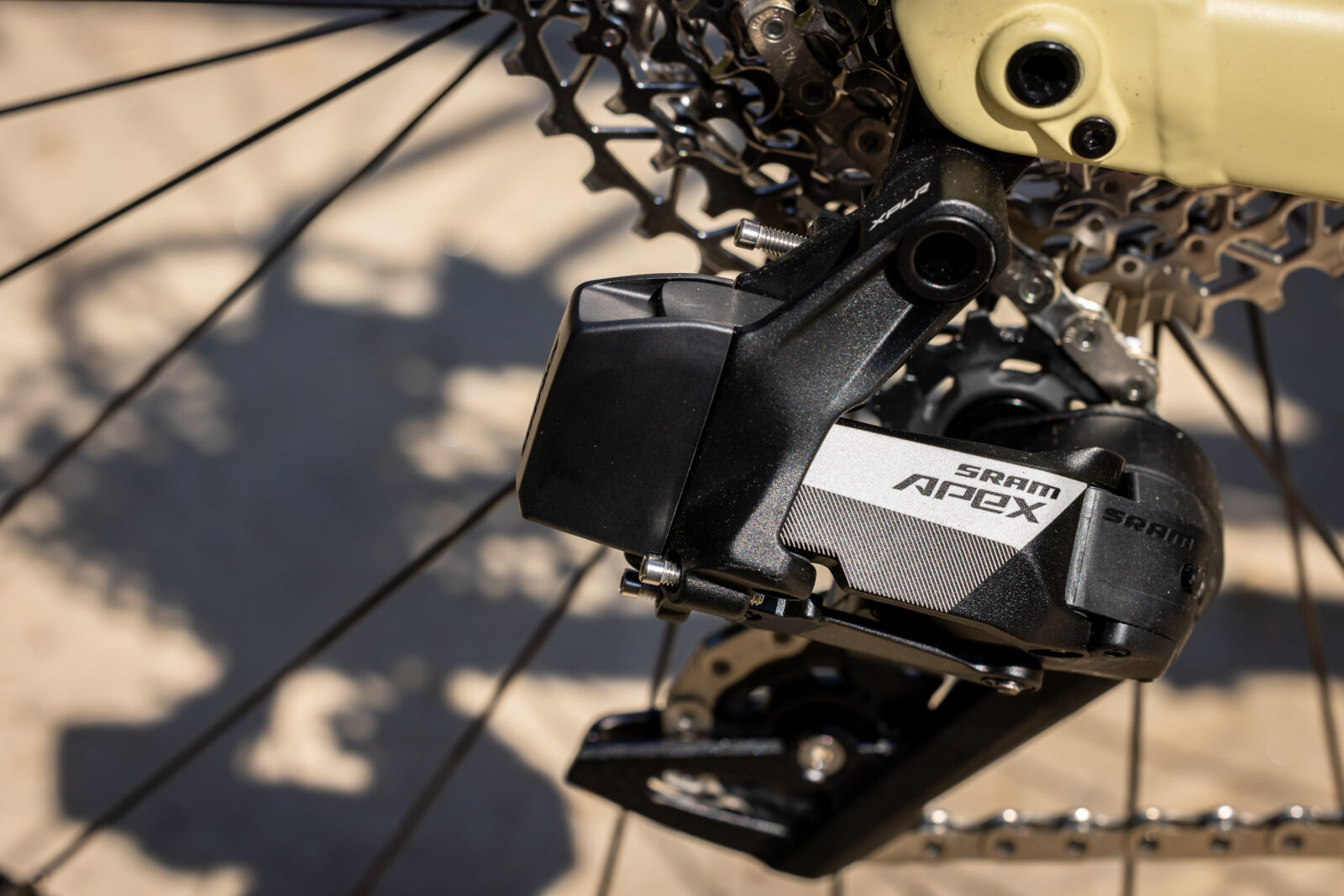
Handling and ride feel
One aspect that stood out during my testing was how the Bend R6X handled on technical gravel descents and loose corners. The slightly slacker front end, combined with the long wheelbase and generous tyre clearance, makes the bike feel planted and composed, even when the surface is loose or unpredictable. This confidence-inspiring platform is for riders new to gravel or those wanting more assurance on rougher terrain. It’s not ultra-sharp or twitchy like some race-oriented gravel machines, but it strikes an ideal balance between stability and responsiveness. This makes it perfect for long adventure rides, loaded bikepacking, or just spirited weekend exploring.
Practical details
The bike’s cables are externally routed at the bars, which won’t appeal to everyone visually, but it makes at-home maintenance and repairs far easier – a big plus for anyone heading out into remote areas or doing their own maintenance. There’s also a chainstay protector already installed and subtle fender and rack mounts throughout, making this bike fully viable for commuting or touring. The flared handlebars add control on fast descents and rougher terrain, and the stock saddle proved comfortable enough to leave alone for the duration of my testing.
The R6X is available in just one colour at this stage – what I’d call a dusty yellow. I liked the finish, which also includes subtle topographic-style linework on the top tube, but riders who care about colour choice might be disappointed with the lack of options.
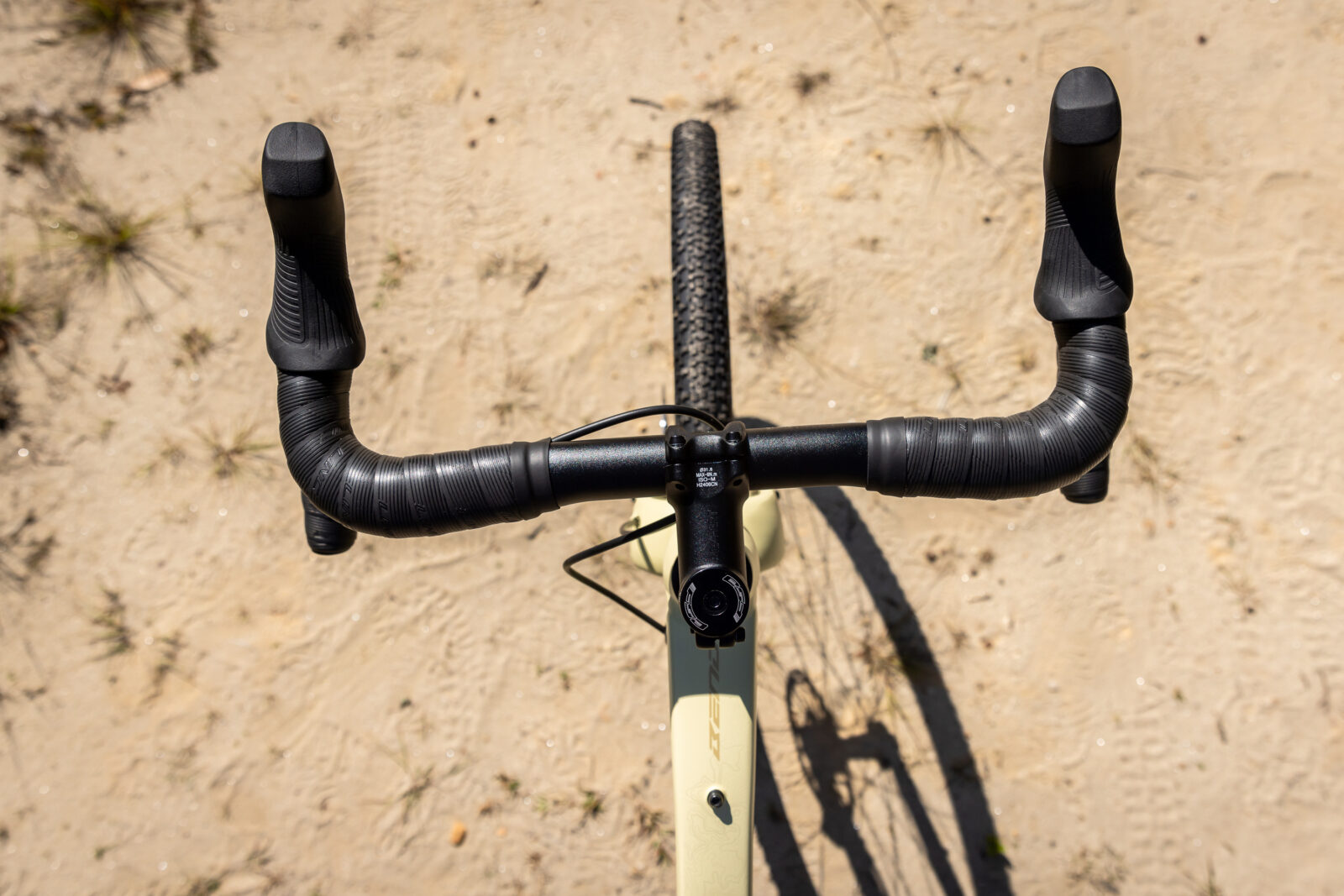
Verdict
So, does this versatile gravel/adventure/bikepacking bike hit the mark? I’d definitely say yes. Riding the Bend R6X felt comfortable, confident, and – above all – fun in just about every condition I tested it in. Even on a commute to work, it felt purposeful and lively. At its very competitive price point of $3,199, you’re getting a quality alloy frame, an excellent wireless drivetrain, solid wheels, and a geometry that can handle just about anything you throw at it.
Polygon’s direct-to-consumer model is clearly working well – they’ve managed to pack an impressive spec list into a well-rounded, modern gravel bike without the inflated price tags seen elsewhere. Whether you’re a weekend explorer, commuter, gravel racer, or bikepacker, the Bend R6X gives you a solid and confidence-inspiring platform with room to grow. It’s a do-it-all machine with few compromises – and one that’s genuinely enjoyable to ride.
Performance
The Bend delivers a confident and comfortable ride across diverse terrain, handling everything from climbs to commutes, making it a true all-rounder.
Quality
With a high-grade alloy frame, carbon fork, and a reliable groupset, it offers impressive build quality and design features, like dropper post compatibility and extensive mounting points.
Value
At an RRP of $3,199, the Bend R6X represents excellent value with some quality components, modern geometry, and performance that in some ways rivals more expensive bikes.
More info bicyclesonline.com.au
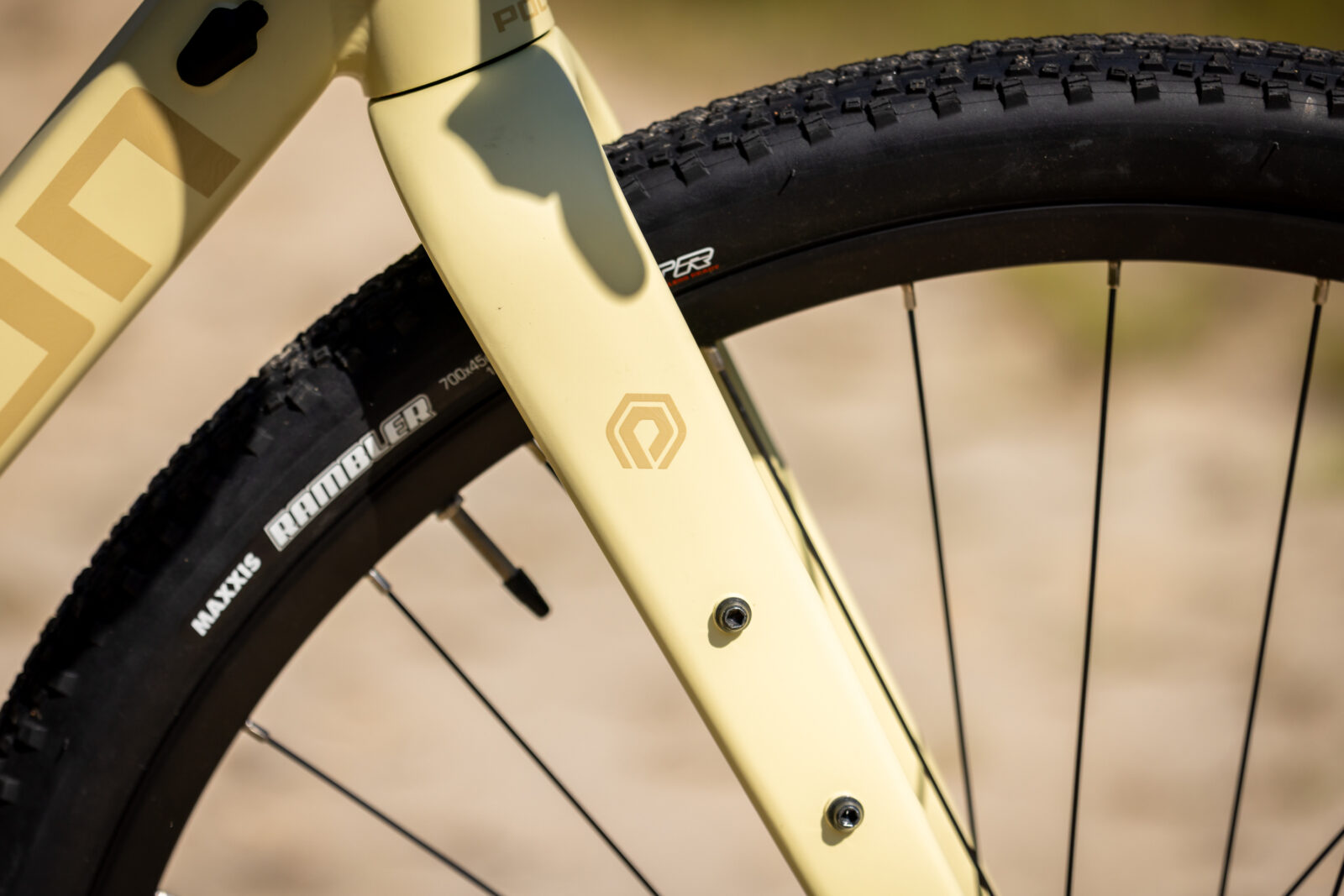
Specifications
Frame: ALX Advance Alloy
Fork: Full carbon
Shifters: SRAM Apex XPLR AXS, 12-speed wireless electronic
Rear Derailleur: SRAM Apex XPLR AXS, 12-speed
Crankset: SRAM Apex 1 Wide, 38T chainring
Cassette: SRAM PG-1231 D1 XPLR, 11–44T, 12-speed
Chain: SRAM Apex D1, 12-speed
Rims: Double-wall alloy, 25mm internal width, tubeless compatible
Hubs: Novatec 32H, centerlock
Tyres: Maxxis Rambler EXO TR 700x45c, tubeless ready
Tyre Clearance: Up to 700x50c
Brakes: SRAM Apex hydraulic disc
Rotors: SRAM Paceline A1 160mm
Handlebar: Alloy 6061DB, 440mm width, 125mm drop, 16° flare
Stem: Alloy, 70mm length, 7° rise
Seatpost: Leadtec 27.2mm diameter, 350mm length
Saddle: Selle Royal Terra Argo X7
Headset: FSA No.42/ACB Integrated Threadless (1-1/8″ – 1.5″)
Dropper Post Compatibility: Yes, accepts 27.2mm internally routed
Weight: Approximately 10.8 kg (tubeless setup)
RRP: $3,199

Luke Meers
Luke Meers - Wollongong-based writer Luke is a strong and competitive bike rider. He writes regular tech and gear reviews for Bicycling Australia and isn’t afraid to get his hands dirty.
